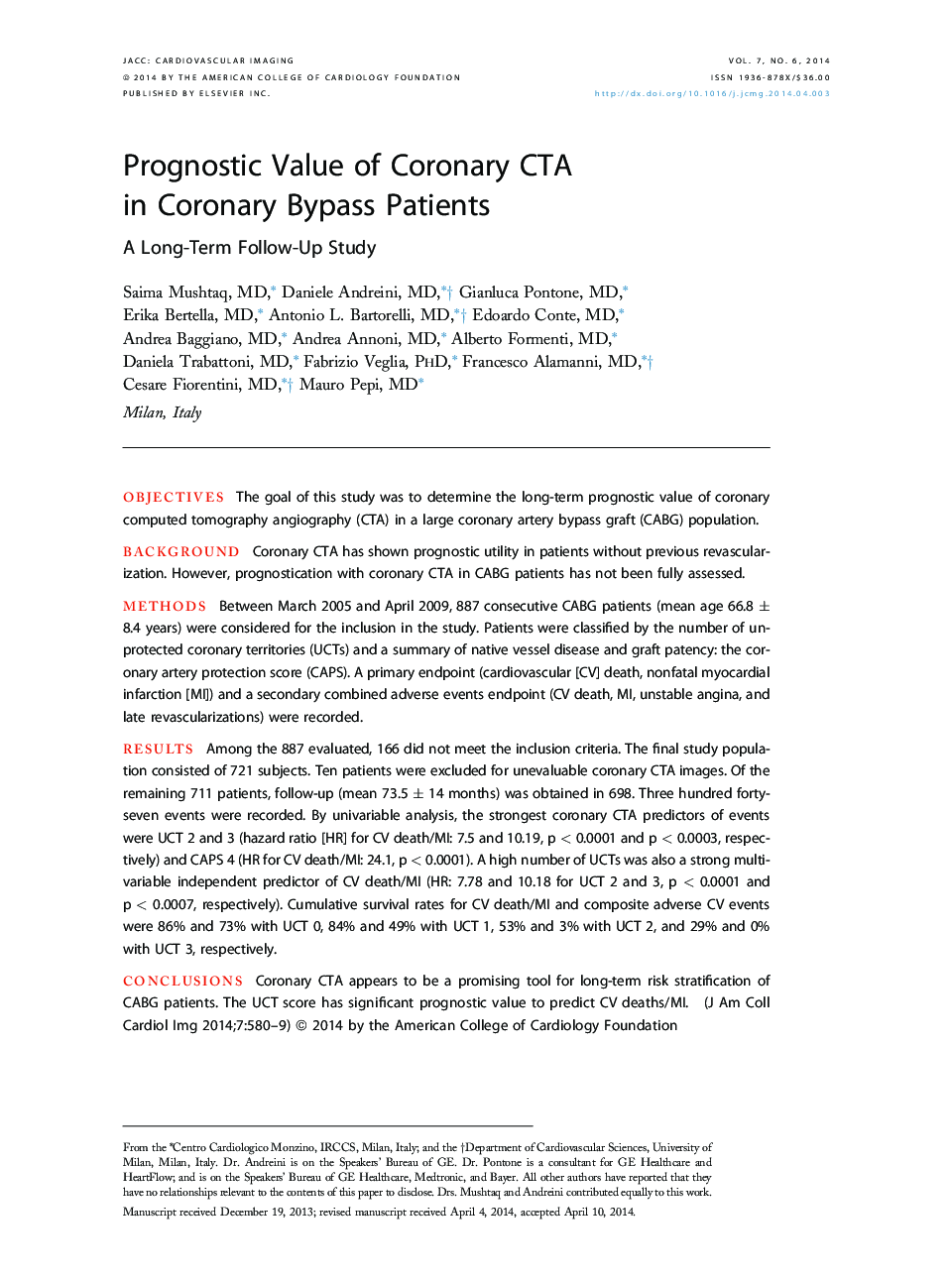| Article ID | Journal | Published Year | Pages | File Type |
|---|---|---|---|---|
| 2938042 | JACC: Cardiovascular Imaging | 2014 | 10 Pages |
ObjectivesThe goal of this study was to determine the long-term prognostic value of coronary computed tomography angiography (CTA) in a large coronary artery bypass graft (CABG) population.BackgroundCoronary CTA has shown prognostic utility in patients without previous revascularization. However, prognostication with coronary CTA in CABG patients has not been fully assessed.MethodsBetween March 2005 and April 2009, 887 consecutive CABG patients (mean age 66.8 ± 8.4 years) were considered for the inclusion in the study. Patients were classified by the number of unprotected coronary territories (UCTs) and a summary of native vessel disease and graft patency: the coronary artery protection score (CAPS). A primary endpoint (cardiovascular [CV] death, nonfatal myocardial infarction [MI]) and a secondary combined adverse events endpoint (CV death, MI, unstable angina, and late revascularizations) were recorded.ResultsAmong the 887 evaluated, 166 did not meet the inclusion criteria. The final study population consisted of 721 subjects. Ten patients were excluded for unevaluable coronary CTA images. Of the remaining 711 patients, follow-up (mean 73.5 ± 14 months) was obtained in 698. Three hundred forty-seven events were recorded. By univariable analysis, the strongest coronary CTA predictors of events were UCT 2 and 3 (hazard ratio [HR] for CV death/MI: 7.5 and 10.19, p < 0.0001 and p < 0.0003, respectively) and CAPS 4 (HR for CV death/MI: 24.1, p < 0.0001). A high number of UCTs was also a strong multivariable independent predictor of CV death/MI (HR: 7.78 and 10.18 for UCT 2 and 3, p < 0.0001 and p < 0.0007, respectively). Cumulative survival rates for CV death/MI and composite adverse CV events were 86% and 73% with UCT 0, 84% and 49% with UCT 1, 53% and 3% with UCT 2, and 29% and 0% with UCT 3, respectively.ConclusionsCoronary CTA appears to be a promising tool for long-term risk stratification of CABG patients. The UCT score has significant prognostic value to predict CV deaths/MI.
